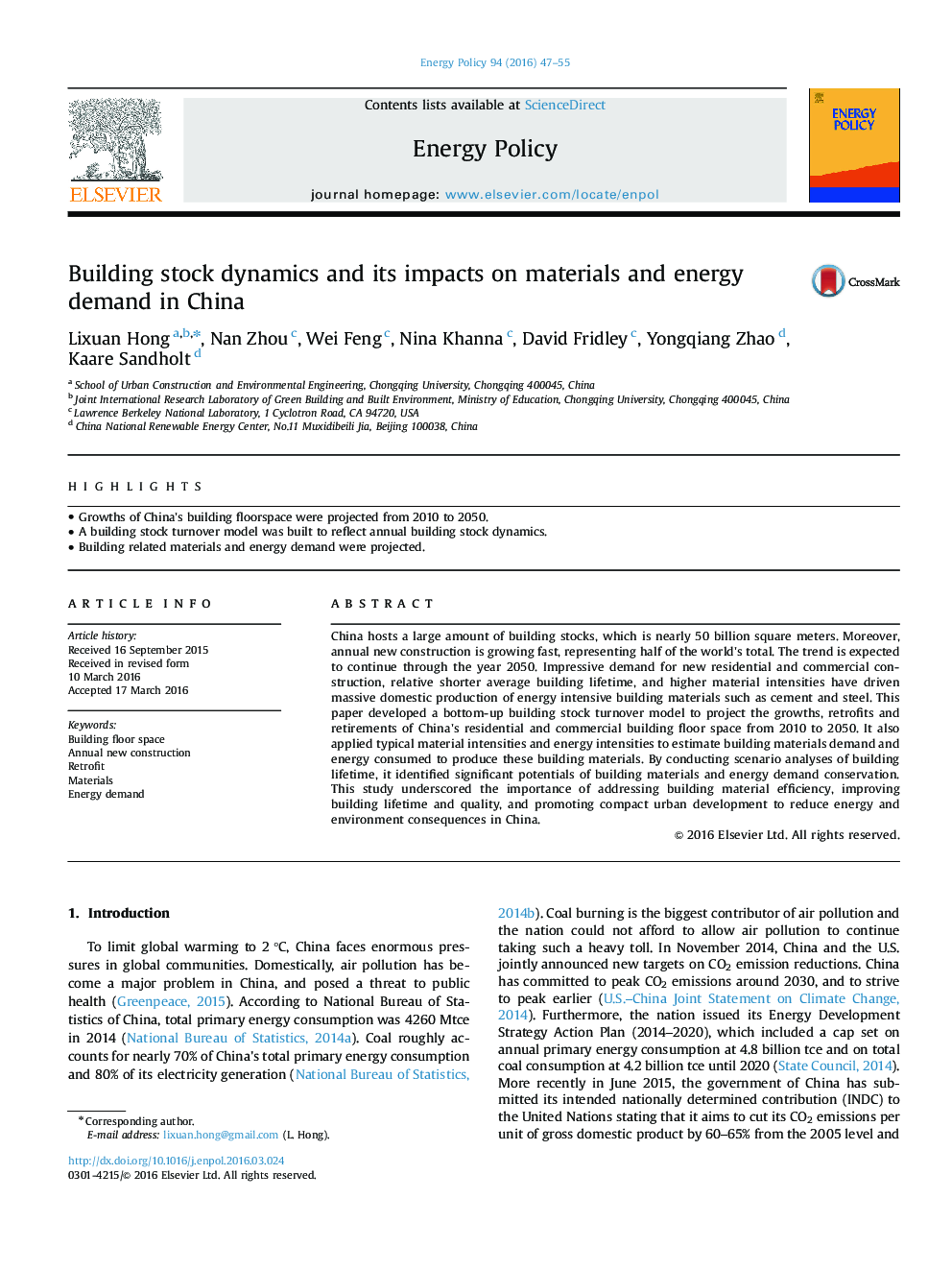| Article ID | Journal | Published Year | Pages | File Type |
|---|---|---|---|---|
| 7399193 | Energy Policy | 2016 | 9 Pages |
Abstract
China hosts a large amount of building stocks, which is nearly 50 billion square meters. Moreover, annual new construction is growing fast, representing half of the world's total. The trend is expected to continue through the year 2050. Impressive demand for new residential and commercial construction, relative shorter average building lifetime, and higher material intensities have driven massive domestic production of energy intensive building materials such as cement and steel. This paper developed a bottom-up building stock turnover model to project the growths, retrofits and retirements of China's residential and commercial building floor space from 2010 to 2050. It also applied typical material intensities and energy intensities to estimate building materials demand and energy consumed to produce these building materials. By conducting scenario analyses of building lifetime, it identified significant potentials of building materials and energy demand conservation. This study underscored the importance of addressing building material efficiency, improving building lifetime and quality, and promoting compact urban development to reduce energy and environment consequences in China.
Keywords
Related Topics
Physical Sciences and Engineering
Energy
Energy Engineering and Power Technology
Authors
Lixuan Hong, Nan Zhou, Wei Feng, Nina Khanna, David Fridley, Yongqiang Zhao, Kaare Sandholt,
